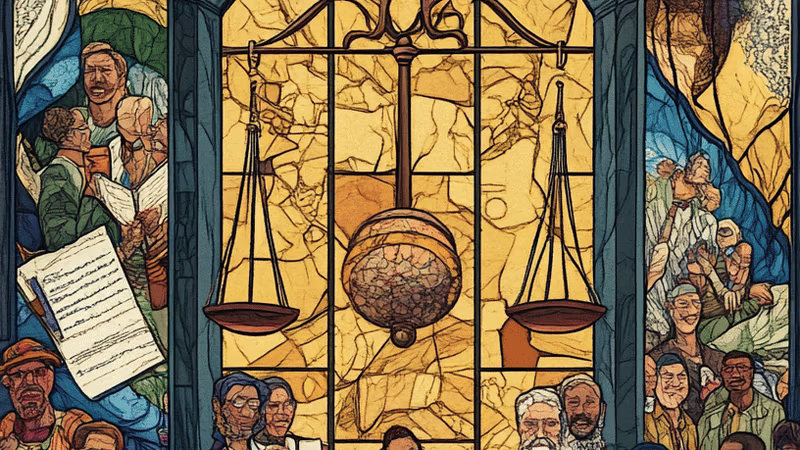Key Takeaway
Explore how employment discrimination and disability rights laws protect American workers on Long Island and NY.
 Employment discrimination and disability rights protection remain central concerns in American workplaces. This article examines how these two legal areas intersect and what employees should know about their rights.
Employment discrimination and disability rights protection remain central concerns in American workplaces. This article examines how these two legal areas intersect and what employees should know about their rights.
Introduction
Discrimination in the workplace affects many Americans. It shows up in different ways, like gender and race bias. It can also involve unfair treatment based on disabilities.
Despite significant legal progress, workers with disabilities still face substantial barriers to equal employment opportunities. Knowing how employment discrimination law protects disabled workers helps create fair workplaces. It also empowers employers and employees to support these important rights.
Historical Development of Disability Rights
Before modern protections, workers with disabilities encountered widespread discrimination with little legal recourse. The Rehabilitation Act of 1973 marked the first major step forward, prohibiting disability discrimination in federal employment and federally funded programs.
The Americans with Disabilities Act (ADA) of 1990 transformed disability rights protection. This landmark legislation established comprehensive civil rights safeguards for individuals with disabilities, particularly in employment settings. The ADA’s passage reflected growing recognition that disabled workers deserve equal access to career opportunities.
Employment Discrimination Law Framework
Federal and state laws prohibit workplace discrimination based on protected characteristics including race, color, religion, sex, national origin, age, and disability. For disabled workers, these protections cover all employment aspects:
- Hiring practices
- Promotion decisions
- Compensation
- Termination
- Workplace accommodations
- Training opportunities
- Benefits
The Equal Employment Opportunity Commission (EEOC) enforces these federal protections and investigates discrimination complaints.
Key Legislation Protecting Disabled Workers
Several major laws govern disability rights in employment:
Americans with Disabilities Act (ADA)
- Prohibits discrimination in public life including employment
- Requires reasonable workplace accommodations
- Protects qualified individuals with disabilities
- Covers employers with 15+ employees
Rehabilitation Act of 1973
- Bars discrimination in federal employment
- Protects workers in federally funded programs
- Section 504 provides additional civil rights protections
State Disability Laws
- Many states enacted stronger protections
- May cover smaller employers
- Often provide additional accommodations requirements
The ADA’s Impact on Workplace Rights
The ADA fundamentally changed how employers must treat disabled workers. Key requirements include:
- No discrimination in any employment decisions
- Limited pre-employment medical inquiries
- Reasonable accommodation requirements
- Confidentiality of medical information
- Interactive process for determining accommodations
While implementation challenges persist, the ADA created vital protections for millions of American workers with disabilities.
Notable Legal Cases
Several court decisions shaped current disability rights interpretation:
Sutton v. United Airlines (1999)
- Initially narrowed ADA disability definition
- Led to 2008 ADA Amendments Act expanding coverage
Toyota v. Williams (2002)
- Addressed essential job functions
- Clarified reasonable accommodation standards
These cases continue guiding how employment discrimination lawyers approach disability rights cases.
Current Enforcement Challenges
Despite legal protections, barriers remain:
- Lack of employer ADA knowledge
- Persistent disability discrimination
- Accommodation disputes
- Cost concerns
- Implementation difficulties
Employment lawyers and the EEOC play crucial roles addressing these issues through:
- Legal advocacy
- Discrimination complaint investigation
- Education initiatives
- Enforcement actions
Filing Discrimination Claims
Workers facing disability discrimination have several options:
- File an EEOC complaint
- Contact a discrimination lawyer
- Pursue state law remedies
- Consider wrongful termination claims
- Request reasonable accommodations
Time limits apply, so prompt action is important when experiencing discrimination.
Choosing Legal Representation
Employment discrimination cases involving disability rights require specialized legal knowledge. When selecting an attorney, consider:
- Experience with disability discrimination cases
- Knowledge of state and federal laws
- Track record of successful outcomes
- Understanding of medical conditions
- Ability to navigate EEOC procedures
The Law Office of Jason Tenenbaum, P.C. focuses on employment law and disability rights in NYC and Long Island. Their experienced employment lawyers understand both federal protections and New York state laws governing disability discrimination.
Conclusion
The intersection of employment discrimination law and disability rights continues evolving. While progress occurred, achieving truly equal employment opportunities requires ongoing commitment to:
- Legal enforcement
- Workplace education
- Accommodation implementation
- Rights advocacy
Understanding these protections helps ensure fair treatment for all workers. Those experiencing discrimination should consult qualified employment lawyers to protect their rights effectively.
Related Articles
Common Questions
Frequently Asked Questions
What constitutes workplace discrimination in New York?
New York law prohibits discrimination based on protected characteristics including race, color, religion, sex, national origin, age, disability, sexual orientation, and gender identity. This includes hiring, firing, promotion, compensation, and other terms and conditions of employment.
